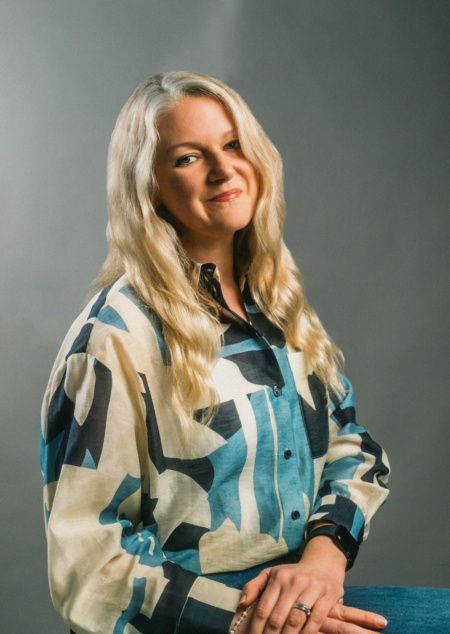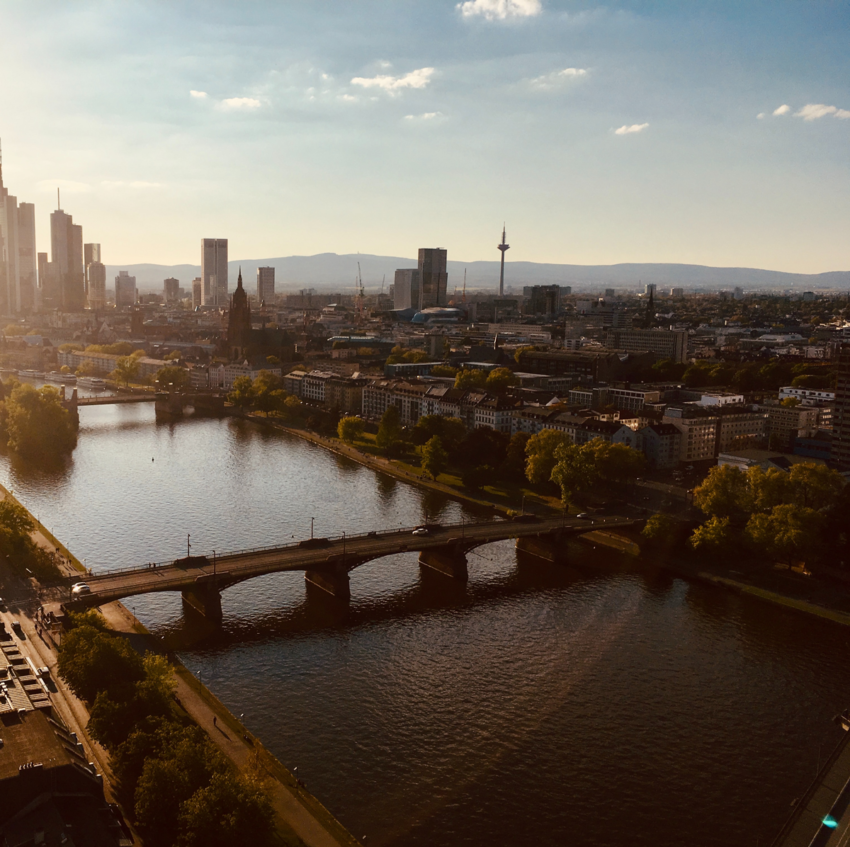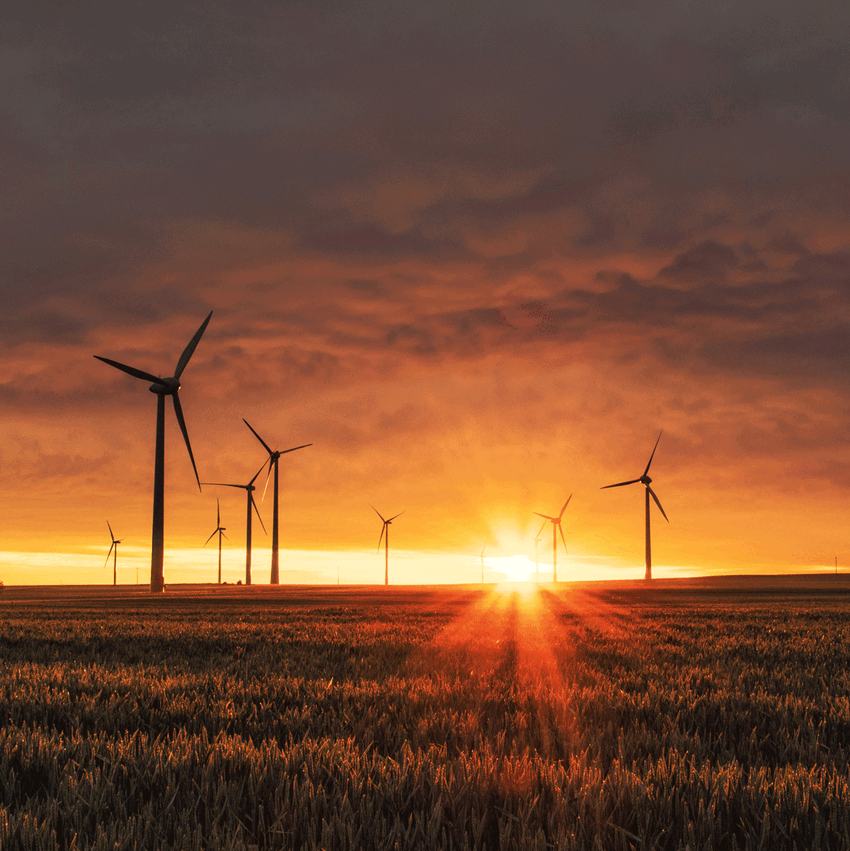A platform for positive change
With the release of our Frankfurt 2022 Sustainability Report, Ellie Scott spoke to Roger Lehner, Senior Operations & Sustainability Executive, IMEX Group and Eric Wallinger, Director of Sustainability at MeetGreen to find out more.
We’ve just published our sustainability report for IMEX Frankfurt 2022, prepared for the first time by MeetGreen. What were the standout results for you?
“What strikes me, is the outstanding job IMEX did covering such a full spectrum of event sustainability across its planning, execution, and reporting.’ Explains Eric. ‘This ranges from advanced environmental footprint metrics, to materiality, to social equity and community benefit. For example, IMEX is one of a small group of events that both tracks and publicly discloses results such as speaker gender parity - 59% female to 41% male in 2022.”
Eric further explains the rationale behind the report’s content; “As part of IMEX Frankfurt sustainability efforts, we look closely at any new materials fabricated each cycle. One of the highlights that really registered with me at the show was the recognition that nearly all Hall 9 signage, graphics and structural elements were designed for a three-year use-cycle or else rented and returned to inventory. Actions like this are concrete examples of IMEX’s commitment to using the materials it produces, wisely and with intention.”
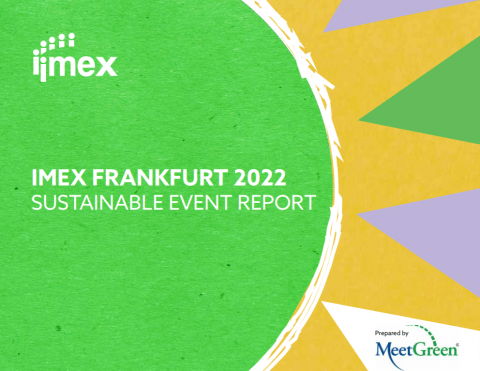
Less than 0.5% of waste from the show was sent to landfill post event. How have we achieved that?
Roger discloses; “It’s a combination of our own efforts and the great infrastructure in Frankfurt. We’ve consistently worked with our suppliers and our exhibitors over the years to reuse items, to choose recyclable materials, to eliminate what’s not necessary, such as printed materials, and to donate to the local community. We also benefit from Frankfurt’s sophisticated material recovery infrastructure. What can’t be recycled is incinerated for energy production.”
Eric adds that “At an operational level, we really appreciated the opportunity to visit, tour and audit the Meinhardt recycling and waste transfer center serving Messe Frankfurt. Every event region has its own unique nuances of what materials best integrate into their recovery and recycling models. Having a baseline understanding here, continues to benefit our long-term understanding for exhibition design and build.”

What are the biggest opportunities for the events industry to make a net positive impact?
Roger acknowledges, “IMEX is aware of the progress we need to make as an industry, and as a company we’re taking serious strides to address this, while also focusing on the positive impact our industry generates, from economic impact to community wellbeing.
Collaboration is critical to addressing our global challenges. Every meeting, event and conference needs to have sustainability on the agenda. We need to actively position ourselves as the platform that drives positive change. The UN SDGs (sustainable development goals) are a good reference: there were 16 goals to answer various challenges. But then people realized there was something missing: collaboration in the form of partnerships, so goal 17 was added. We are goal 17!”
IMEX has joined the net zero carbon events (NZCE) industry initiative. What are the challenges event planners face on the road to net zero? And what advice would you offer to help overcome them?
“Historically, we haven’t measured an event’s carbon footprint in great detail or to a consistent standard that everyone should adhere to.” Explains Roger; “We all need to measure the same emissions in the same way. We also need to work closer with our supply chains. Suppliers need to produce new sustainable products, such as circular fabric for banners. New processes and new ways of doing things are also required for positive change, such as moving away from ‘build-and burn’ stands to reusable, modular event production. There are many more examples.
The NZCE initiative has useful guidance and continually works on new updates to help our global industry.”
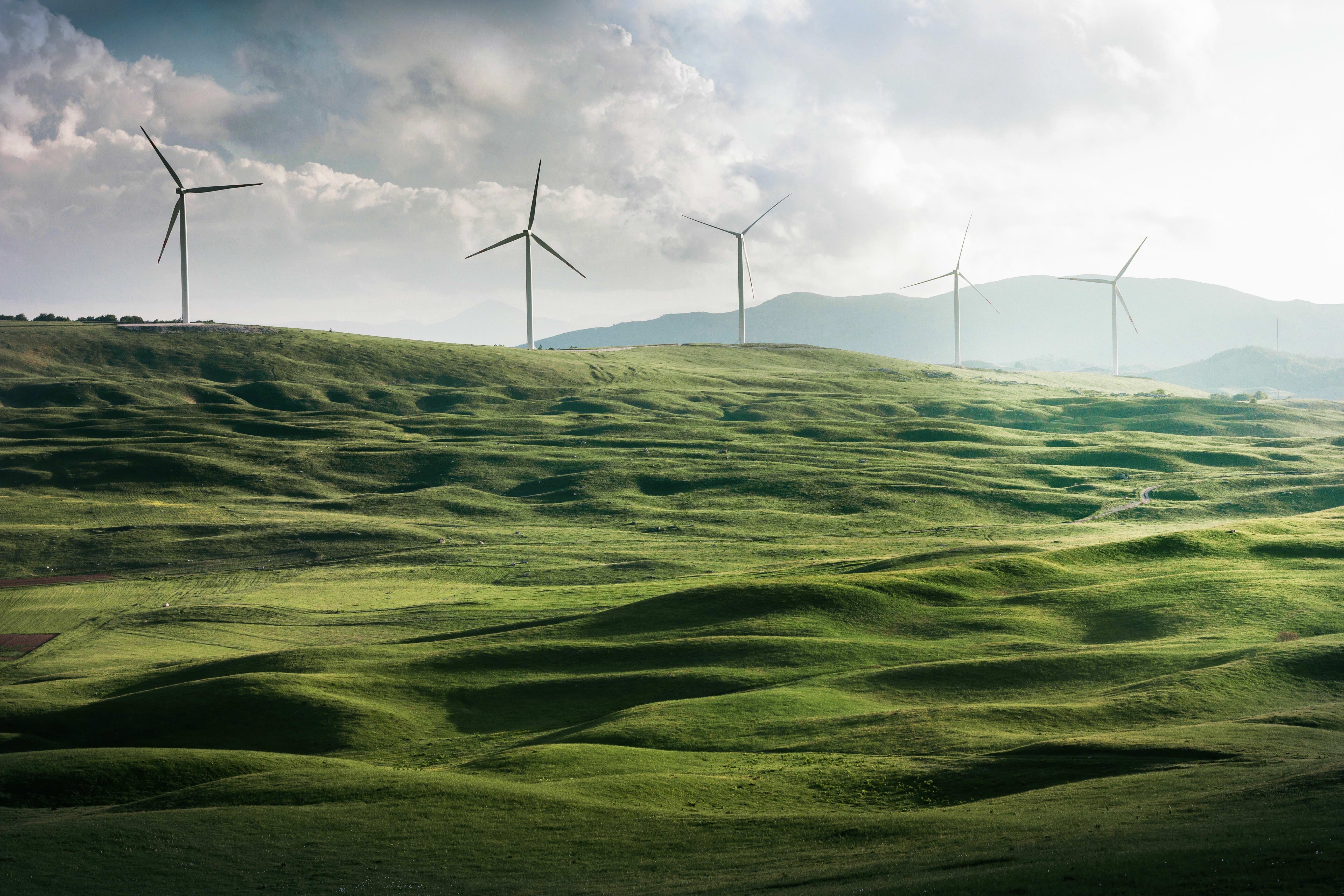
Eric agrees that; “Air travel for events continues to be a major challenge on our industry’s road to net zero. It can often comprise a large portion of a conference’s carbon footprint. That is one of the reasons the central location of IMEX Frankfurt is so critical. It offers the advantage of unparalleled public transport and low-emission rail access for its European attendees.”
Finally on a personal level, is there one thing we can do in our everyday lives to be more sustainable?
Roger reaches for the cause of collaboration; “Firstly, stop thinking as an individual. No matter what you set yourself as a goal, you’ll find like-minded people and together you’ll have an impact far bigger than just your own. You’ll be part of a group of people who want more kindness, for everyone and for the planet.” He continues; “Vote for the change you want to see. I mean this both literally in terms of political votes, and figuratively: every time you spend money you vote for a product and a company. Spend it with businesses that you want to see thriving, such as local independents who offer sustainable products and services.”
Eric adds “One of the biggest insights I’ve gained from working in the events industry, is witnessing the power of reuse at all levels of scale. This has ranged from coffee cups, all the way to trade show stand construction. The fewer new things produced means fewer raw materials extracted, transported and disposed of. In our own lives, taking an additional moment to consider what we can reuse or repurpose, can make a tremendous difference to our planet.”
